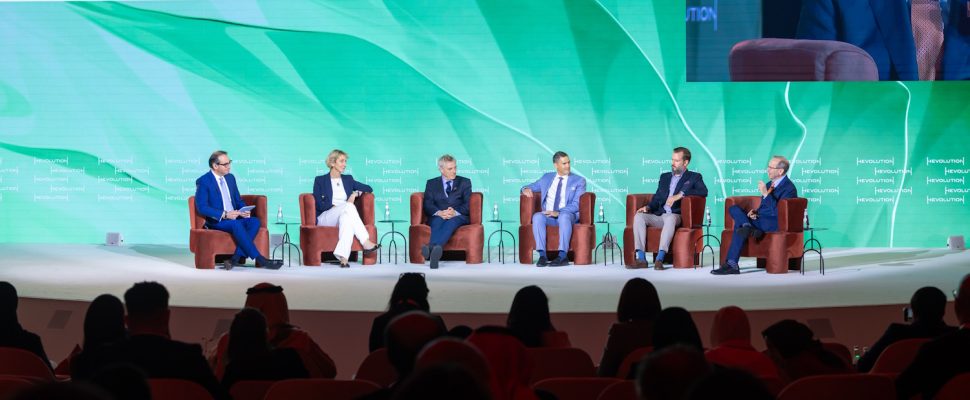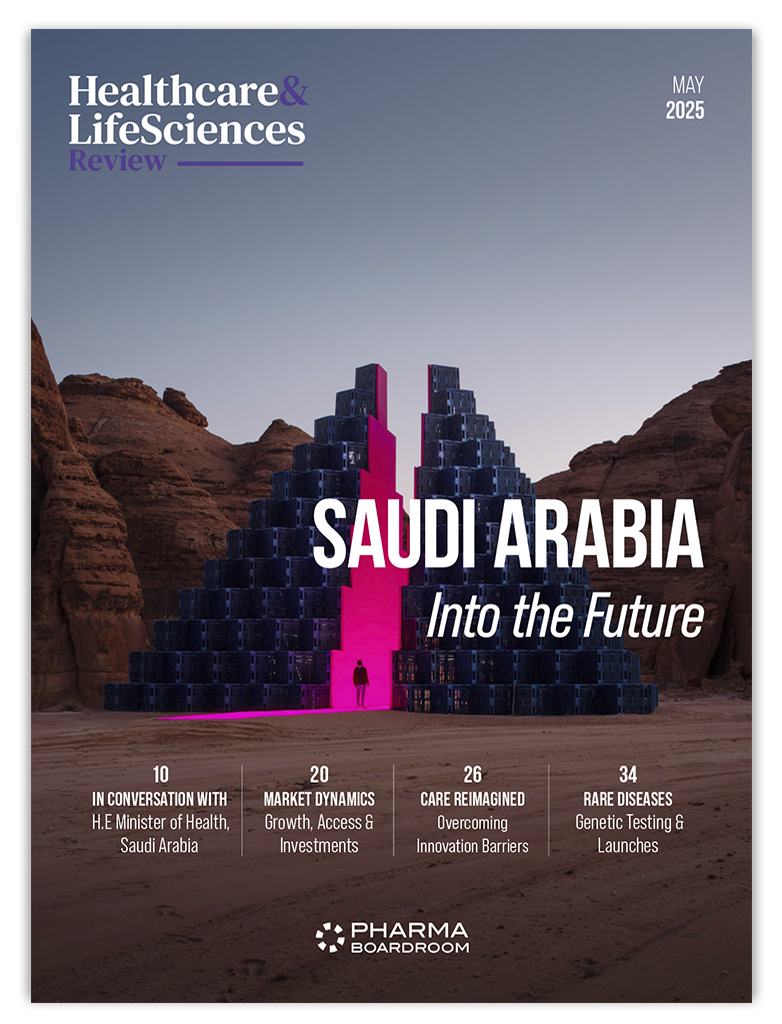Extending not only lifespan, but “healthspan,” and ensuring people live healthier lives for longer is moving beyond purely clinical settings. Experts gathered last week at the Global Healthspan 2025 Summit in Riyadh, Saudi Arabia focused on factors such as lifestyle, the role of virtual tools, and a more holistic approach to healthcare.
Lifestyle Impact
As our societies age and healthcare systems feel the pressure, healthy aging, or safeguarding people’s health as they grow older, brought luminaries from around the world together for the Hevolution Foundation-sponsored Global Healthspan 2025 Summit in Riyadh, Saudi Arabia. At the ‘The Future of Healthspan Medicine – Interventions beyond the Clinic’ panel participants discussed how to integrate healthy aging into daily life and take healthcare to settings that extend beyond the clinic.
Panellist Shannon Neilsen, longevity director at the Saudi integrated healthcare network PureHealth, pointed out that health is no longer about going to the doctor when one feels ill, but about preserving health reserves across one’s life. “It’s something that is maintained through life by deeply understanding ourselves and building solid daily habits.”
This understanding includes healthy practices such as exercise, diet, sleep, and stress management. “Lifestyle factors are fundamental. The most effective ways to target aging today are things like exercise, which builds resilience and provides a defence against aging’s effects,” said Nathan K. LeBrasseur, director of the Robert & Arlene Kogod Center on Aging at the Mayo Clinic.
Increasing health across life also means increasing wellbeing. “It’s not just about preventing death, but about the joy of living, enhancing vitality and strength,” stressed Joanna Bensz, founder and CEO of the Longevity Center Europe.
Virtual Healthcare: A Key Ingredient
For Daniel Quirk, chief medical officer at Alzheimer’s drugmaker Biogen, virtual healthcare as a way of managing healthy aging is moving into the mainstream and as populations age, it will become essential. “We’re at a key inflection point where virtual healthcare is going to become the norm, not the exception. We’re talking about everything from tele-visits to tele-monitoring, and making more thoughtful decisions about our patients.”
Yet, virtual interactions do not eliminate the need for human connections, especially when it comes to motivation and adherence to lifestyle changes. “People need someone—whether a doctor or a coach—to explain, translate, and motivate. Data alone is not enough to drive behaviour change,” Bensz pointed out.
A Growing Understanding of Aging
Aging, the number one risk factor for most chronic diseases, results from the accumulation of molecular and cellular damage. While lifestyle factors and monitoring remain vital, science is uncovering advances that may lead to a slowing or reversal of the aging process.
“Twelve years ago, we started asking what molecular and cellular processes go astray with time and whether they are actionable,” Guido Kroemer, professor at the Université Paris Cité affirmed. “The idea is that accelerating these processes speeds up aging, but more importantly, slowing them down could decelerate or even reverse aging.”
New findings are also showing that targeting common aging mechanisms can impact multiple diseases. “What was once considered science fiction is now science. We now see that targeting fundamental processes of aging can impact multiple diseases that seem unrelated, from fibrosis to diabetes,” said LeBrasseur.
Towards an Integrated and Personalised Healthcare Model
With an aging population that is putting an increasing strain on healthcare systems, panellists argued for the need to introduce a more holistic model that would integrate all aspects of maintaining health across people’s lifespans, incorporating aspects such as fitness, wellness, insurance, and medical care. “We should stop seeing healthcare, wellness, and insurance as separate. The future is an integrated system that wraps itself around the consumer, using data from everyday life to promote good health,” Nielsen maintained.
“I envision a future where we have an integrated ecosystem with a ‘health coach in your pocket’ and longevity-focused primary care doctors embedded in communities,” he went on to say.
Early detection of disease and personalised medicine are strategies that were also outlined. Biogen’s Quirk touched on biomarkers and AI-driven medicine as ways to promote these strategies. “The use of biomarkers is crucial—not just to detect disease, but to guide therapy. We need to ensure patients are getting the right treatment at the right time.”
“Two of the most proven biomarkers of longevity are VO2 max and grip strength—these are simple, cost-effective, and provide real-time insights into healthspan,” Nielsen concurred.
Longevity Medicine for Everyone
Long seen as a luxury available only for the elite at expensive longevity clinics, living longer and healthier, the panel participants emphasised needs to be accessible to all, a task that begins with greater awareness. “For longevity medicine to scale, it must be both affordable and understandable. Most people don’t engage because they don’t understand its value,” said Nielsen.
In Bensz’s view, the solution to wider awareness lies in lifestyle-centred medicine. “We must introduce lifestyle medicine—things like sleep, nutrition, and stress management—because they are simple, accessible, and foundational to longevity.”



